Belgium Job Openings
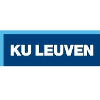
KU Leuven
MSCA Doctoral Network DEMINE – Openings for doctoral candidates
Leuven
FULL TIME
September 18, 2024
Laatst aangepast: 29/08/24
Our team is dedicated to enhancing meaningful interactions between people and digital technologies through our partnerships with the Mintlab, the LUCA School of Arts, and the Digital Society Institute.
Our research group focuses on several core themes. We investigate news media diversity, the representation of ethnic and cultural minorities, and what role digital media play into the lives of young people in at-risk situations. Our research on digital game culture offers valuable insights into how interactive media influence social networks and cultural practices. We explore the dual nature of digital technologies, recognizing both their opportunities and challenges. Our studies on problematic internet use, including gaming addiction and excessive social networking, reveal the psychological and social implications of digital media. We examine the cultural impact of digital technologies, such as the mediatization of religion, modern myths, and conspiracy theories. We also study the historical and cultural dimensions of film and media, analyzing how cultural, economic, and ideological forces have shaped their distribution, exhibition, and reception over time.
Through our research, we seek societal engagement and aim to contribute to media policy and governance, promoting ethical practices and inclusive approaches to media consumption, design and production. We conduct advanced scientific, conceptual, and empirical research with societal relevance, navigating the evolving landscape of media and communication.
This innovative programme explores the impact of traditional media, social media, and interpersonal interactions on attitudes toward migration and social cohesion. It focuses on the dynamics of political and societal polarisation and radicalisation, providing insights into how these processes affect society.
DC1 Topic: “Gauging online and offline extreme discourses and its producers”
Responsibilities:
- Investigate online extreme discourse in social media commentary sections (e.g., Facebook, Instagram, Twitter/X, You Tube, Tik Tok).
- Analyse extreme discourses in news platforms and political discourse (parliamentary debates, campaign discourses, manifestos/party programmes).
- Identify common linguistic and rhetorical characteristics of extreme discourses.
- Use methods like interviews and network analysis to examine the characteristics and online footprints of individuals who create and disseminate extreme discourses
- Set up experiments to test how the general public distinguishes and perceives different types of extreme discourses
- Focus on gender and intersectionality in all aspects of discourse analysis.
Requirements:
- Master’s degree in relevant field (communication sciences, linguistics, psychology, etc.).
- Strong analytical and research skills.
- Proficiency in English; Knowledge of Dutch is a plus.
- Experience with (social media) data analysis and data analytic tools and coding (e.g., SPSS, NVivo, R). Experience with interviewing and conducting experiments is a plus.
- Commitment to developing methodological, writing, and publishing skills.
Host: KU Leuven (BE)
For more information, contact Prof. Michael Opgenhaffen at Michael.opgenhaffen@kuleuven.be
DC 2 Topic: “Understanding characteristics of producers of information disorders”
Responsibilities:
- Conduct computational studies of political extremist groups/communities on social media, focusing on identified subreddits, Twitter/X hashtags, and open Facebook extremist groups.
- Use the Twitter/X Streaming API for data collection and analysis.
- Perform digital ethnography to understand incentives and motives of active users sharing extreme content with misinformation.
- Investigate personal and group-coordinated sharing strategies outside the studied groups/hashtags.
- Examine networks of professional producers of extreme political content using misinformation.
- Focus on gender and intersectionality in all aspects of discourse analysis.
Requirements:
- Master’s degree worth 120 ECTS in relevant field (communication sciences, linguistics, psychology, etc.).
- Must have expertise in Natural Language Processing models and methods, web scraping, and online data collection.
- Must have high proficiency in at least one programming language, preferably Python.
- Preferably have knowledge about GDPR and data protection.
- Preferably have experience with quantitative discourse/text analysis using media sources.
Host: Aarhus University
For more information, contact Prof. Rebekah Baglini at rbkh@cc.au.dk
DC 3 Topic: “Understanding characteristics of populist discourse”
Responsibilities:
- Investigate elements of populist discourse on social media.
- Identify common characteristics of populist discourses, including hate speech, extreme discourses, Islamophobic content, and radicalised Islamist discourse.
- Distinguish populist discourses from serious political criticism and determine if these characteristics can be recognised automatically.
- Focus on gender (women’s rights) in all aspects of discourse analysis.
Requirements:
- Master’s degree worth 120 ECTS in relevant field (communication sciences, linguistics, psychology, etc.).
- Expertise in qualitative discourse/text analysis, including methodology knowledge and coding skills.
- Knowledge of one European language besides academic English and native language.
- Preferable: Knowledge about GDPR and data protection, (near) native speaker proficiency in a major immigrant language (e.g., Arabic, Turkish, Urdu) to map both sides of the problematic discourse landscape, experience with ethnographic work (such as interviews and questionnaires), and programming and statistics skills.
Host: Aarhus University
For more information, contact Prof. Alexandra Kratschmer at romak@cc.au.dk
DC 4 Topic: “Examining the effects of online harmful and toxic discourse in the digital society”
Responsibilities:
- Examine the effects of different types of online problematic and harmful discourse, such as hate speech, information disorders (disinformation and conspiracy theories), and populist discourse on ideological polarization, attitudes, and beliefs.
- Investigate the effects of these types of harmful discourses in the general population
- Test how the origin of these discourses (e.g., social media, politicians, celebrities, conspiracy theorists, unfamiliar sources) plays a role in this process
- Identify segments of the population most vulnerable to these harmful contents (e.g., people with lower digital skills, with lower SES.).
- Use conventional methods (e.g., experimental studies, longitudinal surveys) and digital methods (e.g., data donation, daily diary approach) to identify cause-and-effect relationships between exposure to harmful content and subsequent polarisation and attitude changes over time.
- Pay special attention to diverse backgrounds and aspects of intersectionality.
Requirements:
- A Master's degree in Communication Science, or a Master's degree from a related field (e.g., Media Studies, Psychology, Political Science.).
- Strong research skills in quantitative research methods required. Particularly, knowledge pertaining to quantitative data analysis is important (in programs such as R, Python, SPSS, etc.).
- Proficiency in English is required; Dutch is a plus.
- The ability to work independently as well as part of a team. Successful candidates have well-developed social skills that they effectively use to collaborate with colleagues.
- Willingness to further develop methodological, writing, and publishing skills in the context of the doctoral research.
Host: KU Leuven
For more information, contact Prof. Brahim Zarouali at brahim.zarouali@kuleuven.be
DC 5. Topic “Identifying vulnerable groups among adolescents”
Responsibilities:
- Investigate the association between psychological characteristics and sensitivity to migration-related, socially unacceptable extreme discourse in adolescents.
- Analyse the role of contextual factors such as classroom composition, perceived teacher attitudes, and cultural diversity climate in this association.
- Identity subroups of adolescents who are more susceptible to extreme discourse
- Assess the impact of school-based interventions on adolescents’ views of extreme discourse.
- Test how individual differences (e.g., diverse backgrounds, aspects of intersectionality), peer relationships, and classroom characteristics influence the outcomes of these interventions.
- Master’s degree in relevant field (psychology, education sciences, sociology, etc.).
- Proficiency in English and Italian.
- Expertise in quantitative and qualitative methodologies (including coding skills).
- Experience with data analytic tools (e.g., R).
- Commitment to developing methodological, writing, and publishing skills.
- Preferably have experience with conducting psychoeducational interventions in schools.
Host: University of Padova
For more Information, contact Prof. Ughetta Moscardino at ughetta.moscardino@unipd.it
DC 6. Topic “Extreme online discourse, humour and Emotion-regulation skills”
Responsibilities:
- Investigate the impact of humour on the acceptability of extreme discourse.
- Identify cognitive skills, particularly emotion-regulation, that reduce the impact of extreme discourse.
- Conduct survey experiments to evaluate perceptions of social media posts varying in extremity and humour.
- Test interventions aimed at increasing emotion-regulation skills in lab experiments.
- Analyse the influence of individual differences and diverse backgrounds on the acceptability of extreme discourse.
Requirements:
- Master’s degree in relevant field (communication sciences, linguistics, psychology, etc.).
- Knowledge of Dutch besides English.
- Expertise in qualitative discourse/text analysis, including methodology knowledge and coding skills.
- Ability to design, conduct and analyse survey and lab experiments.
Host: KU Leuven
For more information, contact Prof. Leen d’Haenens at leen.dhaenens@kuleuven.be
DC 7 Topic “Addressing polarisation, radicalisation, xeno- and Islamophobia and violent extremism through citizenship education within and outside the school walls”
Responsibilities:
- Investigate the impact of education programmes in formal and non-formal environments on detecting inflammatory political discourse.
- Identify and analyse non-formal citizenship education programmes targeting prevention of polarisation, radicalisation, and violent extremism in youth organisations.
- Consider the diverse backgrounds and intersectionality among adolescents in relation to polarisation.
- Conduct cross-country mapping to identify best and worst practices for policymakers and practitioners.
Requirements:
- Master’s degree in relevant field (sociology, anthropology).
- Proficiency in English and Italian.
- Expertise in quantitative and qualitative methodologies (including coding skills).
- Ability to conduct research in different contexts.
- Commitment to developing methodological, writing, and publishing skills.
Host: University of Padova
For more information, contact Prof. Devi Sacchetto at devi.sacchetto@unipd.it
DC 8. Topic “Identifying strategies of empowering political actors to address post-truth politics in the post-factual era”
Responsibilities:
- Identify knowledge and skill gaps of politicians and policy-makers in addressing extreme political discourses causing polarisation, radicalisation, xenophobia, and violent extremism, particularly in relation to migration processes and policies.
- Study how politicians and policy-makers react to / contribute to polarised and radicalised discourses about migration at the intersection between traditional and social media.
- Analyze whether and how online conversations influence political decisions and tactics.
- Develop strategies to build capacity among political actors to cope with and overcome these challenges.
- Carry out comparative study across two/three European countries/contexts.
- Consider different backgrounds, gender dynamics and aspects of intersectionality in the research.
Requirements:
- Master’s degree in relevant field (political science, communication sciences, media studies etc.).
- Use conventional methods (quantitative and qualitative e.g., experimental studies, surveys, coding skills) and digital methods (e.g., linkage analysis of social media data).
- Good proficiency in English; preferably knowledge of Italian and another European language.
- Commitment to developing methodological, writing, and publishing skills.
- Ability to conduct research in different contexts.
Host: University of Padova
For more information, contact Prof. Claudia Padovani at claudia.padovani@unipd.it
DC 9 Topic “Identifying strategies of empowering news media producers to limit the dissemination of disinformation”
Responsibilities:
- Study the general perception of news media producers about polarising messages and misinformation, including self-perception and perception of others.
- Explore the use of digital and social media tools to ‘depolarise’ journalistic discourses, especially on divisive topics like migration.
- Engage news media producers in recognising and addressing technology-driven and psychological biases in their reporting.
- Assess the perceived value of open-source intelligence techniques (OSINT) in limiting the dissemination and validation of disinformation and polarising discourses.
- Focus on diverse backgrounds and aspects of intersectionality in all research activities.
Requirements:
- Master’s degree worth 120 ECTS in relevant field (communication sciences, journalism, media studies etc.).
- Experience or interest in studies of misinformation dissemination and the role of news media.
- Preferably, experience with news media countering mis-/disinformation in one or more European countries.
- Preferably, first experience with OSINT techniques or convincing interest in working with them in the context of data and digital journalism.
- Knowledge of one European language besides English and native language.
Host: Aarhus University
Please submit your application, including a CV and a 2-5 page project description with a literature list, detailing your ideas on how to contribute to the specified work package, to info@demine.eu. Be sure to clearly indicate the position you are applying for in your submission.
Specifically for the candidates applying for the positions at Aarhus University: All applicants must demonstrate excellent English communication skills, as proficiency in academic English is essential for success in this position. You should be able to read, write, and speak English fluently at an academic level. The required English language proficiency is equivalent to a minimum TOEFL score of 83 or an IELTS score of 6.5.
For further details, please visit: http://phd.arts.au.dk/applicants/english-test/”
Applications to up to two openings are welcome. However, only applications in line with the MSCA mobility rules are eligible, meaning that researchers cannot have resided in the country of the host institution for more than 12 months in the three years prior to the date of recruitment.
Deadline for submission of your application is October 15, 2024. Late applications will not be considered. Job interviews with shortlisted candidates will be organised in November-December.
You have various rights in relation to our processing of your personal data. In particular, you have the following rights:
- Right of access: you can request access to your personal data, i.e. the right to get an overview of your personal data that we process.
- Right to rectification: you can request correction of inaccurate data or completion of incomplete data.
- Right to erasure: you have the right to ask us to erase your personal data in certain circumstances.
- Right to restriction of processing: you have the right to ask us to restrict the processing of your personal data in certain circumstances.
- Right to object: you have the right to object to the processing of your personal data in certain circumstances.
- Right to data portability: you have the right to ask that we transfer the personal data you provided us to another organization, or to you, in certain circumstances.
15/10/2024 23:59 CET
New Job Alerts
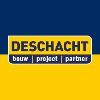
Deschacht Plastics Belgium NV
Magazijnier-Chauffeur
Hoogstraten
FULL TIME
November 6, 2024
View Job Description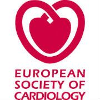
EUROPEAN SOCIETY OF CARDIOLOGY
EU project officer - determined contract
Brussels
FULL TIME & CONTRACT
November 6, 2024
View Job DescriptionCHEMIUM
Business Support Specialist H/F
Ottignies-Louvain-la-Neuve
FULL TIME
November 6, 2024
View Job Description
Equans
CHAUFFAGISTE DE MAINTENANCE - G1 BRUXELLES
Brussels
FULL TIME
November 6, 2024
View Job Description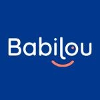
Babilou Belgium
Verantwoordelijke (m/v/x) kinderdagverblijf te Vorst
Vorst
FULL TIME
November 6, 2024
View Job Description
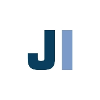
Joris Ide
Certification Engineer ( Panels)
Zwevezele
FULL TIME
November 6, 2024
View Job Description

Looking for similar job?

KU Leuven
MSCA Fellow in FibReLoop project: Recycling continuous composites
Leuven
FULL TIME
August 27, 2024
View Job Description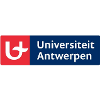
Universiteit Antwerpen
Doctoral scholarship morphology of filter feeding in paddlefish
Antwerp
FULL TIME
August 26, 2024
View Job Description
KU Leuven
Postdoctoral researcher: Development of kinetic plasma simulations on GPUs
Leuven
FULL TIME
August 27, 2024
View Job Description
Universiteit Antwerpen
Doctoral scholarship holder “evaluate and unravel the neuroprotective features of perinatal cell-derived secretomes using hiPSC-derived brain organoids”
Antwerp
FULL TIME
August 20, 2024
View Job Description
KU Leuven
Postdoctoral researcher, HC3 project
Genk
FULL TIME
September 9, 2024
View Job Description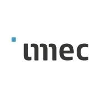
See What’s New: KU Leuven Job Opportunities

KU Leuven
PhD position in Genomics of structural heart defects
Leuven
FULL TIME
November 6, 2024
View Job Description
KU Leuven
Optimising Real-Time Multimodal Data Collection for Assistive Technology (AERIALIST DC5)
Brugge
FULL TIME
October 29, 2024
View Job Description
KU Leuven
Postdoctoral project on cancer therapy via nanomedicine, engineered cells and preclinical imaging
Leuven
FULL TIME
October 25, 2024
View Job Description
KU Leuven
PhD research position for preclinical and translational research in sarcoma
Leuven
FULL TIME
October 23, 2024
View Job Description
KU Leuven
PhD research Position: Development of AI architectures for clinical decision support in glioblastoma
Leuven
FULL TIME
October 22, 2024
View Job DescriptionNew Job Alerts

Deschacht Plastics Belgium NV
Magazijnier-Chauffeur
Hoogstraten
FULL TIME
November 6, 2024
View Job Description
EUROPEAN SOCIETY OF CARDIOLOGY
EU project officer - determined contract
Brussels
FULL TIME & CONTRACT
November 6, 2024
View Job DescriptionCHEMIUM
Business Support Specialist H/F
Ottignies-Louvain-la-Neuve
FULL TIME
November 6, 2024
View Job Description
Equans
CHAUFFAGISTE DE MAINTENANCE - G1 BRUXELLES
Brussels
FULL TIME
November 6, 2024
View Job Description
Babilou Belgium
Verantwoordelijke (m/v/x) kinderdagverblijf te Vorst
Vorst
FULL TIME
November 6, 2024
View Job Description

Joris Ide
Certification Engineer ( Panels)
Zwevezele
FULL TIME
November 6, 2024
View Job Description
